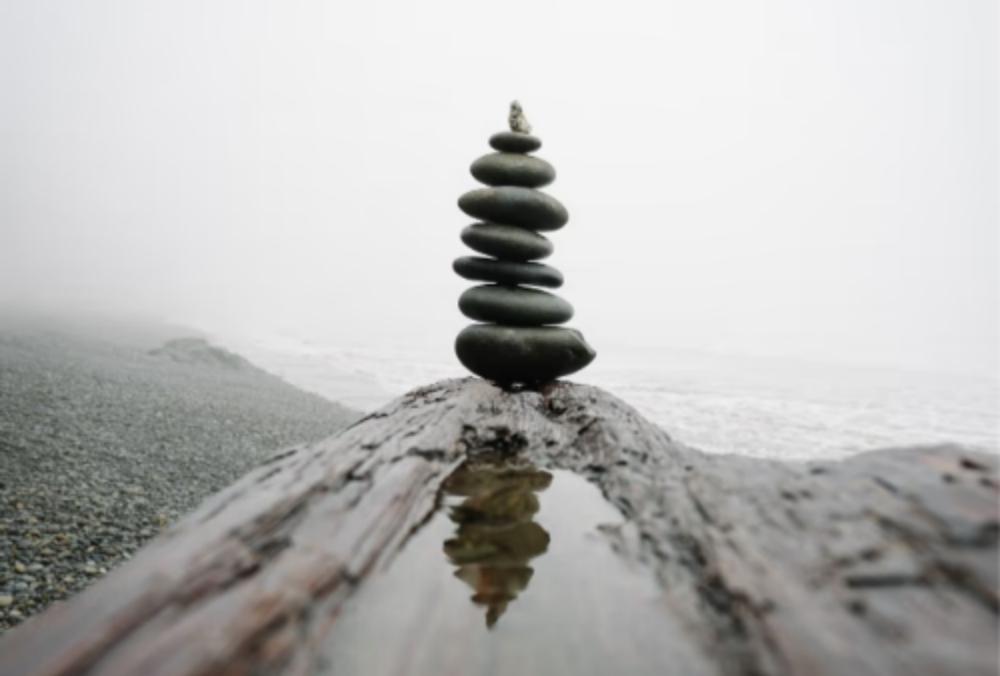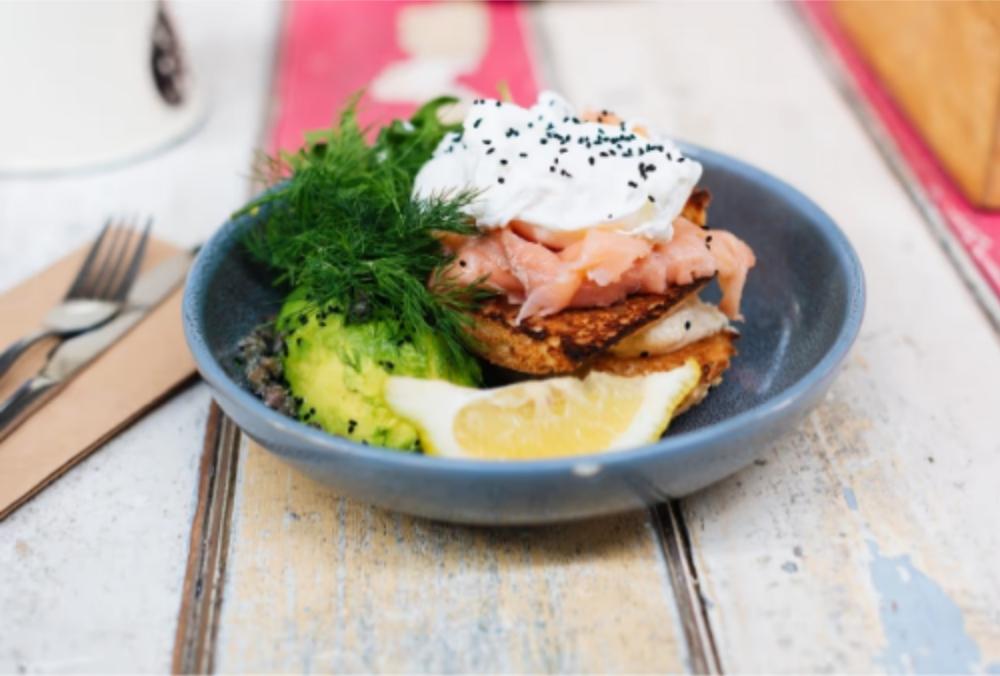Boussole
Wellness
Blog
Boussole Wellness
Blog
Let’s navigate the journey from burnout to blissful balance together!
Learn how I turned exhaustion into empowerment, and am now living a life full of energy and love.

The Stress Response—It matters more than you think
"Understanding the stress response and how it applied to my situation as a burned-out teacher helped me put in place strategies to prevent another reoccurrence."
“You should read Burnout: The Secret to Unlocking the Stress Cycle.”
My principal told me this at the end of a rather long day eight months into the pandemic. I replied, “Thanks, I’ll check it out.”
But, inwardly…
I was rolling my eyes, thinking “Right, as if I’ve got time to read that.”
Days passed yet her suggestion lingered. At this point in my journey, having experienced burnout multiple times in my 18-year career, I realized that if I was going to avoid burning out again I needed something to help me prevent it.
Knowing my already-packed schedule didn't leave time to read an entire book, I found an episode of Brené Brown's Unlocking Us podcast featuring the authors. That hour-long episode became a turning point. What I heard resonated so much for me that I ended up buying the book shortly after.
Cracking open the cover I read, “This is a book for any woman who has felt overwhelmed and exhausted by everything she has to do, and yet still worried she was not doing ‘enough’. Which is every woman we know—including us.”
And I was hooked.
Over the next week, I read (and highlighted) it in its entirety. And I’m so happy I did because not only did it change my life, but since taking action on what I learned I’ve avoided further burnout.
Now I want more women to understand burnout and the stress response. Why? Because if you don’t, you’ll experience emotional exhaustion, depersonalization, and a decreased sense of accomplishment, just like I did.
These are the three components that Herbert Freudenberger used to define burnout in 1975.
Research over the last forty years has found that emotional exhaustion is the most strongly linked to negative impacts on our health, relationships, and work—especially for women.
You suffer from emotional exhaustion when you get stuck in an emotion.
The Nagoski sisters use the metaphor that feelings are tunnels and that you have to go all the way through them to get to the light at the end. You get stuck in the tunnel when you’re constantly exposed to situations that activate that emotion.
For example, as a teacher, facing never-ending to-do lists, various extra-curricular commitments, and needy students all day, every day… I continually felt stressed out, overwhelmed, and exhausted.
They also share that burnout is highly prevalent, especially in careers where “people help people”, like teachers, nurses, social workers, and the like, who are also often women.
The first thing they address are the internal tools we carry with us on our journey: the stress response (also known as the fight or flight response), the monitor, and meaning in life.
The fight or flight response wasn’t a new concept, but I missed how it applied to me. After all, it wasn’t like I was being chased by a woolly mammoth across the tundra. Understanding the stress response and how it applied to my situation as a burned-out teacher helped me put in place strategies to prevent another reoccurrence.
Understanding what your body does when faced with stressors (which are unavoidable unless you live in a plastic bubble) and what you can do to help it return to equilibrium is a game changer.
What triggers the stress response
First, you need to learn how to distinguish between stressors and stress and why this distinction matters.
Stressors are anything that cause your body to release stress hormones, and they can be divided into two broad categories, physiological and psychological.
Physical stressors are anything that puts strain on your body. Psychological stressors are anything you interpret as negative or threatening (could be from an event, a situation, an individual, or a comment). Many of the stressors you face today are psychological in nature and part of the human experience.
Physiological
Very hot temperatures
Very cold temperatures
Injury
Chronic illness
Pain
Psychological
Getting into a conflict
Getting a divorce
Having financial challenges
Being unhappy in your job
Being discriminated against
Caring for other family members
Worrying about world events
It’s important to remember that few stressors are universal, where everyone exposed to the same experience would agree that it was highly stressful. Universal stressors include natural disasters, terrorist attacks, and war.
You need to understand that stressors are highly subjective. What causes me a lot of stress may not cause you very much, and the opposite could be true as well. Your stress response in the face of a particular stressor is likely to be different than your partner’s or your friend’s.
What is the stress response
The stress response is the physiological and psychological changes that happen in your body in reaction to a stressor. When activated, stress hormones flood your body, bringing on a near-instantaneous sequence of changes that prepare your body for fight or flight (regardless of whether you’re facing a woolly mammoth or an urgent deadline!).
What happens during the stress response
Your body’s sympathetic nervous system stimulates the adrenal and pituitary glands to release cortisol, adrenaline (also known as epinephrine), and other substances, which cause a series of changes throughout your body:
Your heart rate speeds up
Blood is redirected from your extremities and sent to your major organs
Your respiration rate speeds up
Your blood pressure goes up
Your muscles tense
Your pupils dilate
You experience trembling and cold flashes
What are the stages of the stress response
There are three stages of the stress response:
The alarm stage: the sympathetic nervous system activates and your body goes through the above changes
The resistance stage: the parasympathetic nervous returns your body to its normal state, pre-stressor
The exhaustion stage: occurs when your body goes through the first two stages without relief. If this happens then you’re suffering from chronic stress.
Long-term chronic stress can lead to burnout and all the feelings of frustration, inadequacy, overwhelm, exhaustion, and helplessness that go along with it.
How the stress response can affect you
The stress response in and of itself is not bad. It’s a generic response designed to help your body deal with a stressful situation.
There are positive effects: it can help you tackle new challenges and it can push you to perform better.
But, there can also be negative effects, like when it gives you a burst of strength and you’re in a work meeting and need a flash of clarity. Or when its effects are chronic, and your body doesn’t get a chance to return to its earlier equilibrium via the relaxation response.
Chronic Stress Effects
Anxiety and depression
Headaches
Heart problems and stroke
Metabolic disorders
Weakened immunity
Gastrointestinal problems
Why you need to care about the stress response
One thing to remember is that the stress response is unique to each individual—and that includes YOU!
The strength of the stress response is related to the perceived level of threat from the stressor. So while two people may face the same stressor (a presentation at work, for example), one person may have a greater stress response due to a past negative experience—they perceive it as a higher threat.
The other thing to remember is that you can manage your stress response. You can’t get rid of the stressors (they’re here to stay!), but you can learn to manage your stress response better by learning how to help your body activate the relaxation response so that you avoid the pain of chronic stress.
Having a toolbox of stress-relief strategies to use when you’re feeling under the gun can help keep stress at bay, as well as banish burnout for good. It’s the key to unlocking the stress cycle.
One quick and effective way to activate the relaxation response is the physiological sigh. I learned this simple strategy from Andrew Huberman and it helps me feel less anxious. When you’re feeling anxious, you want to slow your heart rate down by exhaling longer and/or more vigorously than you inhale. To do the physiological sigh take two quick inhalations, then one long exhalation. Try it, you’ll feel calmer instantly! I’ve been practicing the physiological sigh and it’s been helping me feel less anxious.
Other quick stress relievers to add to your toolbox include:
Breathing exercises
Journalling
Drinking a glass of water
Progressive muscle relaxation
Visualizing a calming scene
Using aromatherapy
We’ll talk more in next week’s post about building long-term stress-relieving habits that boost your resiliency to life’s challenges. In the meantime, if you’re ready to recover from burnout and start experiencing more energy, joy, and balance on a daily basis then join me inside Burnout to Bliss.

The Stress Response—It matters more than you think
"Understanding the stress response and how it applied to my situation as a burned-out teacher helped me put in place strategies to prevent another reoccurrence."
“You should read Burnout: The Secret to Unlocking the Stress Cycle.”
My principal told me this at the end of a rather long day eight months into the pandemic. I replied, “Thanks, I’ll check it out.”
But, inwardly…
I was rolling my eyes, thinking “Right, as if I’ve got time to read that.”
Days passed yet her suggestion lingered. At this point in my journey, having experienced burnout multiple times in my 18-year career, I realized that if I was going to avoid burning out again I needed something to help me prevent it.
Knowing my already-packed schedule didn't leave time to read an entire book, I found an episode of Brené Brown's Unlocking Us podcast featuring the authors. That hour-long episode became a turning point. What I heard resonated so much for me that I ended up buying the book shortly after.
Cracking open the cover I read, “This is a book for any woman who has felt overwhelmed and exhausted by everything she has to do, and yet still worried she was not doing ‘enough’. Which is every woman we know—including us.”
And I was hooked.
Over the next week, I read (and highlighted) it in its entirety. And I’m so happy I did because not only did it change my life, but since taking action on what I learned I’ve avoided further burnout.
Now I want more women to understand burnout and the stress response. Why? Because if you don’t, you’ll experience emotional exhaustion, depersonalization, and a decreased sense of accomplishment, just like I did.
These are the three components that Herbert Freudenberger used to define burnout in 1975.
Research over the last forty years has found that emotional exhaustion is the most strongly linked to negative impacts on our health, relationships, and work—especially for women.
You suffer from emotional exhaustion when you get stuck in an emotion.
The Nagoski sisters use the metaphor that feelings are tunnels and that you have to go all the way through them to get to the light at the end. You get stuck in the tunnel when you’re constantly exposed to situations that activate that emotion.
For example, as a teacher, facing never-ending to-do lists, various extra-curricular commitments, and needy students all day, every day… I continually felt stressed out, overwhelmed, and exhausted.
They also share that burnout is highly prevalent, especially in careers where “people help people”, like teachers, nurses, social workers, and the like, who are also often women.
The first thing they address are the internal tools we carry with us on our journey: the stress response (also known as the fight or flight response), the monitor, and meaning in life.
The fight or flight response wasn’t a new concept, but I missed how it applied to me. After all, it wasn’t like I was being chased by a woolly mammoth across the tundra. Understanding the stress response and how it applied to my situation as a burned-out teacher helped me put in place strategies to prevent another reoccurrence.
Understanding what your body does when faced with stressors (which are unavoidable unless you live in a plastic bubble) and what you can do to help it return to equilibrium is a game changer.
What triggers the stress response
First, you need to learn how to distinguish between stressors and stress and why this distinction matters.
Stressors are anything that cause your body to release stress hormones, and they can be divided into two broad categories, physiological and psychological.
Physical stressors are anything that puts strain on your body. Psychological stressors are anything you interpret as negative or threatening (could be from an event, a situation, an individual, or a comment). Many of the stressors you face today are psychological in nature and part of the human experience.
Physiological
Very hot temperatures
Very cold temperatures
Injury
Chronic illness
Pain
Psychological
Getting into a conflict
Getting a divorce
Having financial challenges
Being unhappy in your job
Being discriminated against
Caring for other family members
Worrying about world events
It’s important to remember that few stressors are universal, where everyone exposed to the same experience would agree that it was highly stressful. Universal stressors include natural disasters, terrorist attacks, and war.
You need to understand that stressors are highly subjective. What causes me a lot of stress may not cause you very much, and the opposite could be true as well. Your stress response in the face of a particular stressor is likely to be different than your partner’s or your friend’s.
What is the stress response
The stress response is the physiological and psychological changes that happen in your body in reaction to a stressor. When activated, stress hormones flood your body, bringing on a near-instantaneous sequence of changes that prepare your body for fight or flight (regardless of whether you’re facing a woolly mammoth or an urgent deadline!).
What happens during the stress response
Your body’s sympathetic nervous system stimulates the adrenal and pituitary glands to release cortisol, adrenaline (also known as epinephrine), and other substances, which cause a series of changes throughout your body:
Your heart rate speeds up
Blood is redirected from your extremities and sent to your major organs
Your respiration rate speeds up
Your blood pressure goes up
Your muscles tense
Your pupils dilate
You experience trembling and cold flashes
What are the stages of the stress response
There are three stages of the stress response:
The alarm stage: the sympathetic nervous system activates and your body goes through the above changes
The resistance stage: the parasympathetic nervous returns your body to its normal state, pre-stressor
The exhaustion stage: occurs when your body goes through the first two stages without relief. If this happens then you’re suffering from chronic stress.
Long-term chronic stress can lead to burnout and all the feelings of frustration, inadequacy, overwhelm, exhaustion, and helplessness that go along with it.
How the stress response can affect you
The stress response in and of itself is not bad. It’s a generic response designed to help your body deal with a stressful situation.
There are positive effects: it can help you tackle new challenges and it can push you to perform better.
But, there can also be negative effects, like when it gives you a burst of strength and you’re in a work meeting and need a flash of clarity. Or when its effects are chronic, and your body doesn’t get a chance to return to its earlier equilibrium via the relaxation response.
Chronic Stress Effects
Anxiety and depression
Headaches
Heart problems and stroke
Metabolic disorders
Weakened immunity
Gastrointestinal problems
Why you need to care about the stress response
One thing to remember is that the stress response is unique to each individual—and that includes YOU!
The strength of the stress response is related to the perceived level of threat from the stressor. So while two people may face the same stressor (a presentation at work, for example), one person may have a greater stress response due to a past negative experience—they perceive it as a higher threat.
The other thing to remember is that you can manage your stress response. You can’t get rid of the stressors (they’re here to stay!), but you can learn to manage your stress response better by learning how to help your body activate the relaxation response so that you avoid the pain of chronic stress.
Having a toolbox of stress-relief strategies to use when you’re feeling under the gun can help keep stress at bay, as well as banish burnout for good. It’s the key to unlocking the stress cycle.
One quick and effective way to activate the relaxation response is the physiological sigh. I learned this simple strategy from Andrew Huberman and it helps me feel less anxious. When you’re feeling anxious, you want to slow your heart rate down by exhaling longer and/or more vigorously than you inhale. To do the physiological sigh take two quick inhalations, then one long exhalation. Try it, you’ll feel calmer instantly! I’ve been practicing the physiological sigh and it’s been helping me feel less anxious.
Other quick stress relievers to add to your toolbox include:
Breathing exercises
Journalling
Drinking a glass of water
Progressive muscle relaxation
Visualizing a calming scene
Using aromatherapy
We’ll talk more in next week’s post about building long-term stress-relieving habits that boost your resiliency to life’s challenges. In the meantime, if you’re ready to recover from burnout and start experiencing more energy, joy, and balance on a daily basis then join me inside Burnout to Bliss.
“Keep good company, read good books, love good things, and cultivate soul and body as faithfully as you can.”
~ Louisa May Alcott
Connect
© Copyright 2026 Boussole Wellness Coaching | Helping women find more balance and feel more fulfilled!
Photography by Christina Louise Branding









